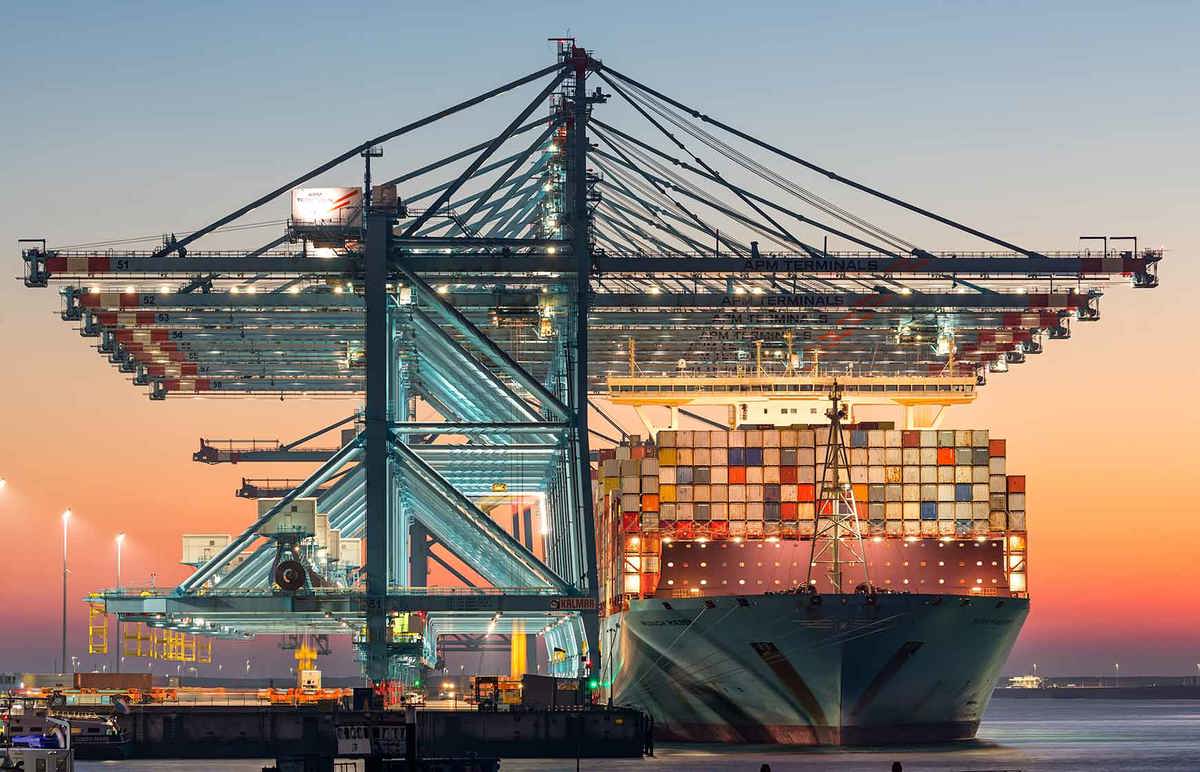APM Terminals to supply shore power for cargo ships in Rotterdam
Dutch terminal operator APM Terminals will install shore power facility at its Maasvlakte II cargo terminal in the Port of Rotterdam.
 PHOTO: Container ship docked at APM Terminals' Maasvlakte deep-sea terminal in Rotterdam. APM Terminals
PHOTO: Container ship docked at APM Terminals' Maasvlakte deep-sea terminal in Rotterdam. APM Terminals
The shore power facility is expected to be available for all sea-going vessels docking at the terminal from 2028, the company said.
Ships need electricity to run onboard operations and equipment while docked in port. Onshore power supply, or plug-in power, allows ships to power these operations without using fuel, thereby reducing their overall fuel consumption and lowering well-to-wake emissions in the near term.
EU to clamp down on port-side emissions
Currently there are 118 shore power facilities operational around the world – distributed across the EU (96), North America (15), Mainland China (4), Hong Kong (2) and India (1), according to DNV’s database.
While shore power usage is gradually gaining popularity across global ports, the EU will impose regional restrictions on port-side shipping emissions from 2030.
The EU’s Alternative Fuel Infrastructure Regulation (AFIR) will mandate major coastal and inland ports on the Trans-European Networks (TEN-T) to provide shore power for container and passenger ships by 2029. In addition, the upcoming FuelEU Maritime regulation will require all ships above 5,000 gross tonnages (GT) to connect to shore power in TEN-T ports from 2030.
By Konica Bhatt
Please get in touch with comments or additional info to news@engine.online






